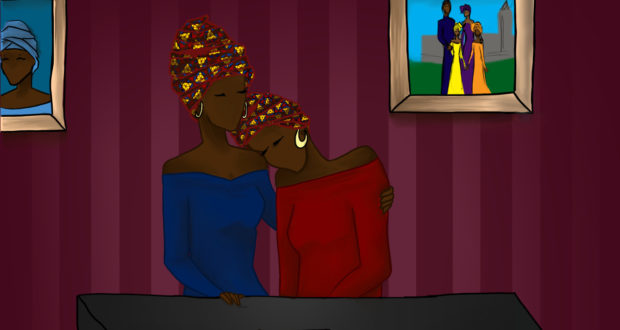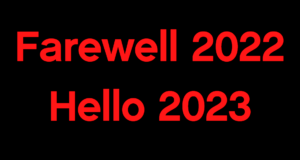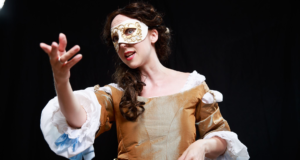Following its development on the VAULT Festival New Writers’ Programme 2019, a sold-out showcase at VAULT Festival 2019, and being shortlisted for the Untapped Award, She Is A Place Called Home is heading back to VAULT Festival 2020, 3– 8 March, for a seven-show run. Before it does, writer Esohe Uwadiae talked to Everything Theatre about the show’s development and its partnership with Solace Women’s Aid.
So, tell us a little about the play.
The show follows two British Nigerian sisters dealing with the fall out within their family as a result of their Dad’s decision to get another wife (as in, in addition to their mum). It portrays how they navigate the impact of this on things like their Christian faith, how they see their parents and their ability to plan for their future. One of the themes running throughout the show is how the existence of multiple cultural lenses contributes to different explanations being assigned to the same action. For instance, what might be adultery or bigamy to one person, is a legitimate right to another. But it raises the question of how we navigate the cultural clashes this inevitably leads to and whether there can be reconciliation.
The show also explores the experience of mental illness by black women, particularly those who have had to take on the role of the ‘strong black woman’, and how a familial crisis can take them to breaking point, jeopardising things like eating disorder recovery and their sense of self.
You are a graduate of the VAULT Festival New Writers’ Programme, how has that helped in developing this play?
I seriously doubt that this play would exist but for the programme. I don’t think I would have had the confidence or knowledge to be able to write it. Over the course of the programme we got to meet with some amazing writers working in the industry like Morgan Lloyd Malcolm (Emilia, The Wasp) and Henry Shields (Groan Ups, The Play That Went Wrong). We also got to watch a huge number of shows at the VAULT Festival (I saw about 60), which allowed me to really expand my knowledge of theatre, figure out what I liked, what I didn’t like, and the different ways a story can be told.
The programme was led and developed by Camilla Whitehill (Freeman, Where Do Little Birds Go?) who really dared us to be fearless in our writing. For that I am incredibly grateful as it allowed me to write without being self-conscious. It also gave me the confidence to begin pursuing other opportunities. For instance, I recently finished the Royal Court Theatre’s Introductory Writers’ Group and I’m almost done writing my second play as part of it.
2020 marks the third year of the programme and I would so recommend it to anyone interested in playwriting. I knew basically nothing when I applied and that’s the point! It exists to support new writers, so come exactly as you are with all of your amazing ideas.
You are partnering with Solace Women’s Aid, has that helped in devising the story?
Throughout the play we touch on different kinds of non-physical methods of abuse which Solace provides support for. As the story is told from the perspective of the two sisters, there is a particular focus on the impact on those whose lives are secondarily affected by violence.
 Key values inherent in Solace’s work is that of empathy and non-judgement of people who find themselves in a situation of domestic violence. This overlaps with one of the big questions this play tries to address, specifically why women might remain in less than ideal situations like this. For me, it was really important to explore this in a way that embodies those values, while being true to the experience of the sisters whose lives are also affected. Through the play, I hope to highlight some of the structures that contribute to this, including the practice of paying bride price (also known as dowry), family pressure and gender expectations.
Key values inherent in Solace’s work is that of empathy and non-judgement of people who find themselves in a situation of domestic violence. This overlaps with one of the big questions this play tries to address, specifically why women might remain in less than ideal situations like this. For me, it was really important to explore this in a way that embodies those values, while being true to the experience of the sisters whose lives are also affected. Through the play, I hope to highlight some of the structures that contribute to this, including the practice of paying bride price (also known as dowry), family pressure and gender expectations.
At the end of each show, we will be running a collection to support Solace’s work. This includes monetary donations, but also donations of toiletries like body wash, toothbrushes and sanitary products.
You can find out more about their work here: https://www.solacewomensaid.org/.
What do you hope people will walk away from the play thinking about?
Sisterhood is at the very heart of this play. I’ve tried to portray a relationship that is raw and honest, one that shows the lengths we go to for the ones we love, but also the cruelty that is sometimes there. Writing this play made me reflect a lot on my relationship with my sisters and it left me incredibly thankful for their existence. I hope people walk away feeling the same renewed sense of gratefulness.
More generally though, I hope people enjoy the brief glimpse this show provides into the many wonderful things about Nigeria and its culture, like the music and the dancing and the clothes.
Given home is clearly a theme, where do you call home right now?
Geographically speaking, Essex. On a more sentimental note, my home will always be where my family is.
—————————————————
She Is A Place Called Home is on at VAULT Festival from 3 – 8 March. Tickets available here
 Everything Theatre Reviews, interviews and news for theatre lovers, London and beyond
Everything Theatre Reviews, interviews and news for theatre lovers, London and beyond



